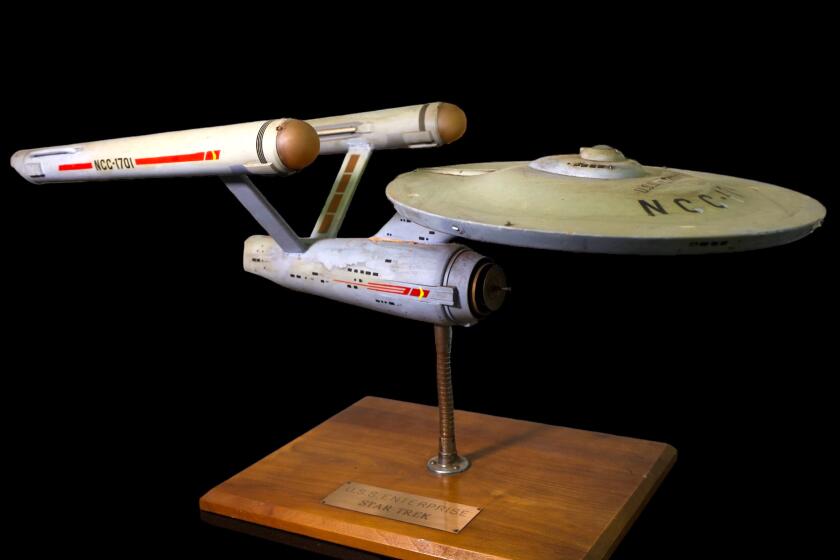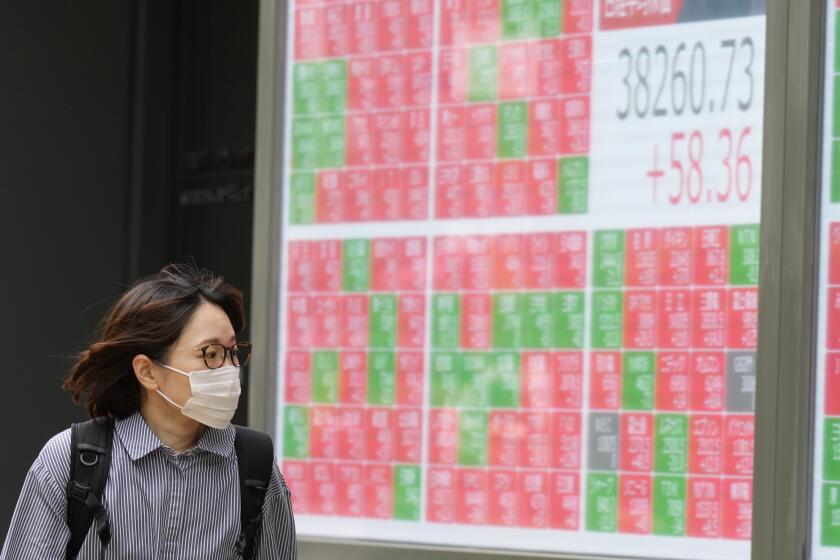An Inventor With Pigtails and Vision
Necessity, we often hear, is the mother of invention.
That’s only because it sounds funny to say that the mother of invention is a 13-year-old eighth-grader who wears pigtails, glasses and a Winnie the Pooh watch.
But anyone who knows Allie Piehn knows better.
For three years, the student at Chaparral Middle School in Moorpark has worked on a device that might make it easier for blind people to navigate the workaday world.
It is safe to say that Allie is the only eighth-grader in town seeking a patent for her science project.
And it’s just as safe to say that there are millions to be made--and millions to be helped--if Allie’s Voice-Enabled Digital Camera should ever hit the market.
“As yet, there is no truly effective, portable device that a blind person can take to, say, a library or a restaurant,” said Larry Israel, president of the Assistive Technology Industry Assn., a group that promotes development of high-tech devices for the disabled. “There’s nothing they can take into a grocery store that will help them scan the shelves.”
Other inventors are racing toward the same end, but few of them have to find time for their calculations between piano lessons and Girl Scouts.
When Allie was in the sixth grade, she was struck by how tough school was for two visually impaired twin sisters.
“I felt sorry for them and I realized how lucky I was,” she said. “They had canes and an aide, but getting around was difficult for them and they had such a hard time reading words. They were my inspiration.”
At the time, she didn’t let them know it.
“I didn’t think there was any way this could possibly work,” she said. “I chose not to say a thing about it.”
Sitting in her kitchen with her latest science project mounted on the table and her fingers doing a ballet on a computer keyboard, Allie is all business. She explains the Voice-Enabled Digital Camera simply enough for a techno-Neanderthal like myself: Point it at text--a McDonald’s menu, for instance--click it, and hear the words you can’t see, phrases like Egg McMuffin, Big Mac, Quarter-Pounder. . . .
Allie talked briskly about problems with the current generation of scanning devices, the promise of new software, the limits of optical character recognition. In a nanosecond, she lost me.
I wasn’t surprised.
Like so many of her classmates, Allie grew up with technology.
As long as she can remember, she’s done her homework on computers.
Her dad, Tom Piehn, is an engineer. When Allie was just a kid, she loved to fool around with the prototype digital cameras he brought home from work.
One day a couple of years ago, she couldn’t stop thinking about the twins in her school . . . and digital cameras . . . and a magazine article she saw on getting your computer to “talk”. . . .
“That first year, I was fresh and everything was ‘Wow!’ ” she says. “Even the digital camera was pretty exciting to me.”
Each year since, she refined the idea and took honors in the Ventura County Science Fair.
She had long talks with computer-savvy blind high school students. She and her parents checked out cutting-edge devices for the blind at a trade show.
And she finally asked the twins over, the girls whose problems sparked Allie’s interest in the first place.
“They thought it was cool,” she said. “Really, really cool.”
Tom Piehn’s boss at an Irvine company called Silicon Film Technologies thought so too.
In exchange for legal work on the patent application, the company can have a shot at producing the camera, Piehn said.
Of course, that might not happen. Developing it would mean spending several million dollars, not to mention overcoming some difficult technical hurdles, Piehn said.
As for Allie, she sees no reason to stop.
“This is my priority,” she said. “This is what I want to do for my career.”
And what job do you have in mind? I asked.
“They don’t have a name for it yet,” she said.
*
Steve Chawkins can be reached at 653-7561 or at steve.chawkins@latimes.com.







